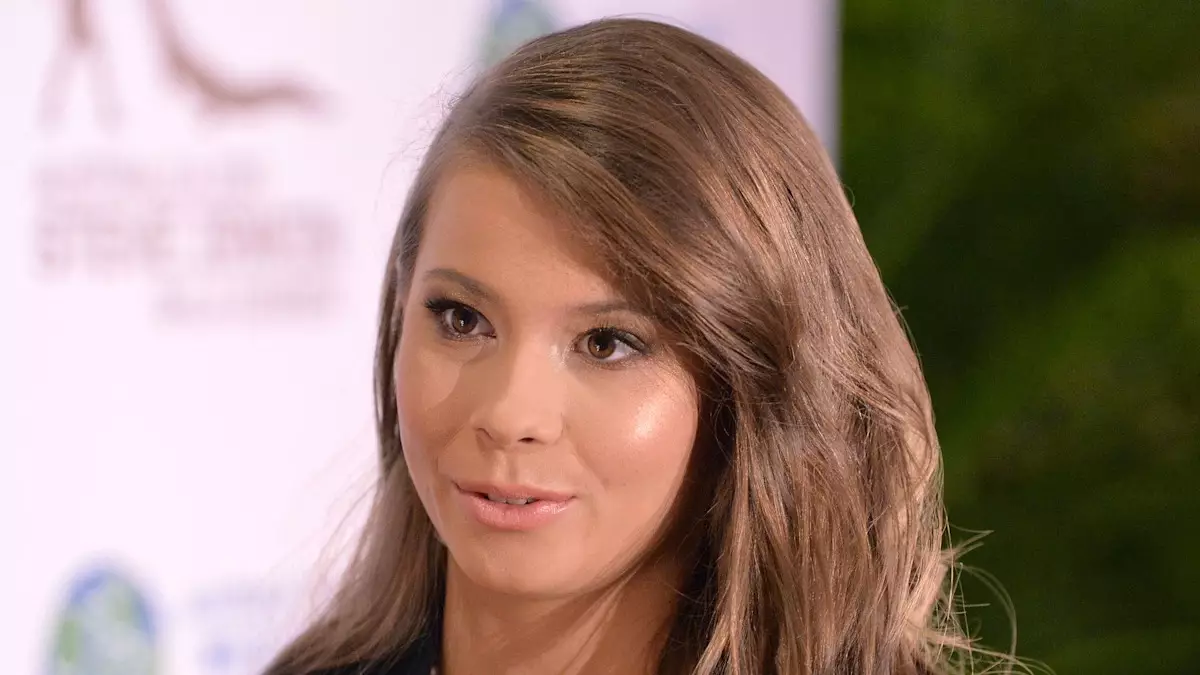Bindi Irwin, revered wildlife conservationist and daughter of the legendary Steve Irwin, has bravely stepped into the limelight to share her deeply personal health struggles that spanned an agonizing decade. The 26-year-old has recently exposed the realities of living with endometriosis — a condition that not only brought her significant physical pain but also emotional turmoil. Her candid revelations on the “A Life of Greatness” podcast highlight the often-ignored plight of countless individuals battling similar health issues in silence.
Endometriosis is a condition where tissue similar to the lining inside the uterus begins to grow outside of it, leading to chronic pain and distress. Bindi’s description of living in constant pain, extreme fatigue, and debilitating anxiety resonates with many who understand the complexities and stigma associated with such illnesses. “Behind closed doors, I was struggling to do anything and everything,” she confessed, a statement that shines a light on the misconception that outward appearances always reflect inner health.
Imagine enduring years of medical consultations, numerous scans and tests – from CT scans to blood tests for a myriad of diseases – only to find no answers. Bindi Irwin faced this frustrating reality for ten long years, with many medical professionals attributing her symptoms to being “just part of being a woman.” Such dismissive attitudes towards women’s health issues are alarmingly common, leaving numerous women feeling isolated and unheard.
Irwin’s story underscores a critical issue in healthcare: the urgent need for better awareness and understanding of endometriosis among both the public and medical communities. The lack of knowledge surrounding this condition can lead to unnecessary suffering, as experienced by Bindi. Her eventual diagnosis opened the door to a path of recovery, but it also illuminated the painful journey she had endured to confront her reality.
One of the most poignant aspects of Bindi’s narrative is the essential role her family played in navigating her health crisis. Surrounded by love and support from her husband, Chandler Powell, and her parents, Terri and Robert Irwin, Bindi felt a sense of reassurance during her darkest times. She expressed gratitude for having a strong family who fought alongside her, a luxury that not everyone is afforded.
Bindi’s mention of how her family urged her to seek help serves as a powerful reminder of the important role loved ones can play in advocating for health and well-being. “They dealt with it for 10 years just as much as I did,” she recalled, emphasizing the shared burden within her family dynamic. It raises an important conversation about the significance of supportive networks in tackling health challenges — something that many face alone.
A defining moment in Bindi’s journey emerged with her transition into motherhood. The birth of her daughter, Grace, compelled her to take decisive action regarding her health. “When I was so sick, it was hard to be the mom I wanted to be,” she stated, highlighting that her suffering had far-reaching implications on her ability to parent effectively. This realization became an impetus for change, pushing her to seek the medical intervention she had long needed but hesitated to pursue.
Bindi’s experience illuminates a common theme among parents, particularly mothers, who often prioritize their family’s needs above their own well-being. Yet her story serves as a beacon of hope for others, advocating that taking care of oneself is equally important for nurturing a family.
While there is currently no cure for endometriosis, Bindi’s surgical intervention marked a transformative chapter in her journey. “There’s no cure, but if you get surgery, you have a better shot at life,” she emphasized, noting the substantial improvement in her quality of life post-diagnosis. This statement highlights not only her resilience but also reinforces the importance of treatment and ongoing education about endometriosis in medical fields.
As Bindi continues to share her story, she emphasizes the importance of advocacy for better understanding and support for those affected by similar conditions. Through her courageous journey, she is not only instigating a necessary dialogue about women’s health but also inspiring others to seek help and not settle for being dismissed. Her battle, though personal, encourages a larger movement towards change and awareness in the medical community, fostering hope for those still fighting in the shadows.

